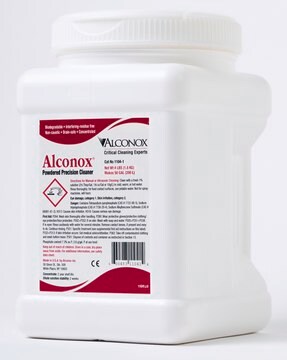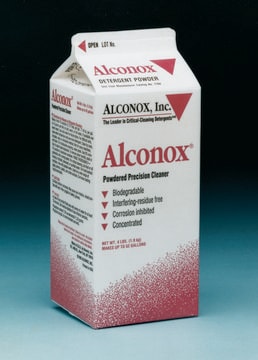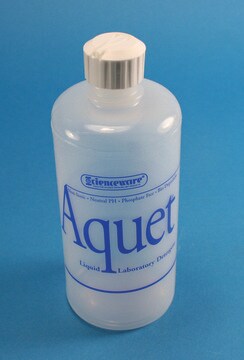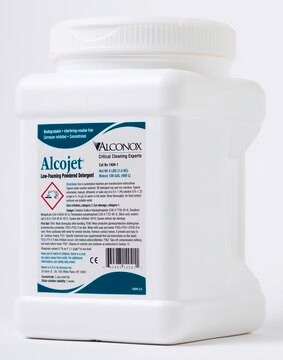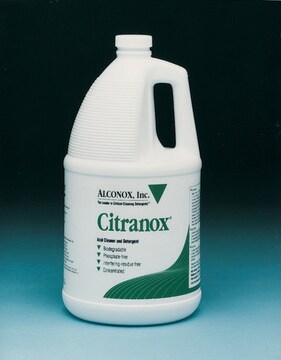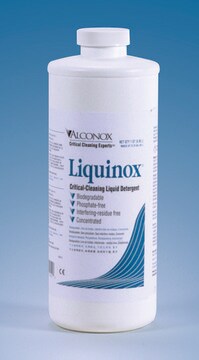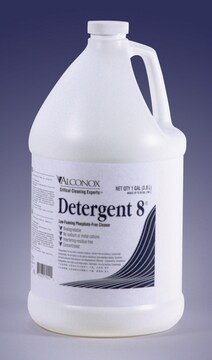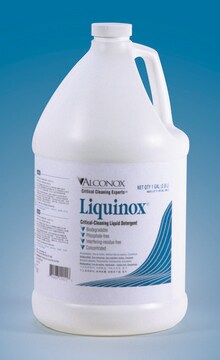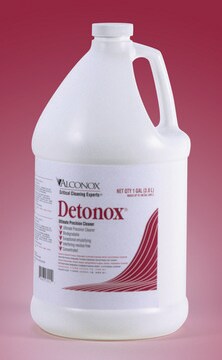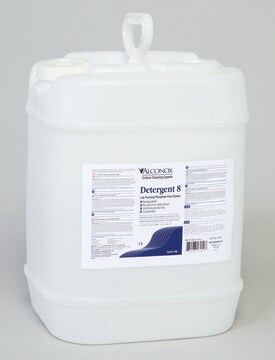Z273228
Alconox® detergent
0.5 oz packs
Synonym(s):
anionic detergent, concentrated powdered detergent, general laboratory cleaner, lab detergent, low foaming detergent, ultrasonic cleaner detergent
About This Item
Recommended Products
Agency
suitable for ASTM® 7968
suitable for ASTM® 7979
suitable for EPA 1613
suitable for EPA 601
suitable for EPA 8327
suitable for SM 5210
packaging
pkg of 12 x 50 × 0.5 oz in 12PAK
pkg of 50 × 0.5 oz in 1PAK
manufacturer/tradename
Alconox, Inc. 1112 (12 packs of 50ea)
Alconox, Inc. 1112-1 (1 pack of 50ea)
application(s)
PFAS testing
Looking for similar products? Visit Product Comparison Guide
General description
Application
- to clean tissue grinder
- for pre-treating glass coverslips
- microfluidic chambers
Features and Benefits
- Highly concentrated and cost-efficient
- Biodegradable and readily disposable
- Penetrating wetting power saves time
- Provides reliable results and no interfering residues
- Alternative for corrosive acids and hazardous solvents
Legal Information
Signal Word
Danger
Hazard Statements
Precautionary Statements
Hazard Classifications
Eye Dam. 1 - Skin Irrit. 2
Storage Class Code
11 - Combustible Solids
WGK
WGK 2
Flash Point(F)
Not applicable
Flash Point(C)
Not applicable
Choose from one of the most recent versions:
Already Own This Product?
Find documentation for the products that you have recently purchased in the Document Library.
Articles
This page provides tables that list the products used in promulgated methods for Per- and polyfluoroalkyl substances (PFAS) analysis, organized by method and step for easy reference. As new methods are released, this page will be updated.
Related Content
FAS, or 'forever chemicals,' persist in the environment and pose risks to human health. Discover our environmental monitoring tools for PFAS quantification, aiding researchers, regulators, and labs in testing for PFAS.
Global Trade Item Number
| SKU | GTIN |
|---|---|
| Z273228-1PAK | 4061834382164 |
| Z273228-12PAK | 4061835484799 |
Our team of scientists has experience in all areas of research including Life Science, Material Science, Chemical Synthesis, Chromatography, Analytical and many others.
Contact Technical Service